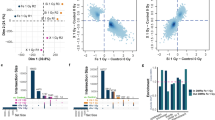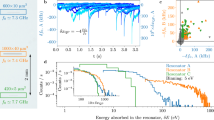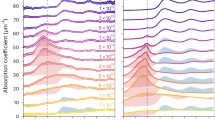Abstract
IN a paper under the above title, Darlington and Koller1 have analysed the close similarity between chemical and radiation-induced breakage of chromosomes, and have rejected the physical ‘target' theory of the X-ray phenomenon as propounded by the late Dr. D. E. Lea2. First, they criticize the data on which this theory was based, asserting that "temperature control has been largely dispensed with in the experiments used by Lea as evidence"; and secondly, they conclude that "it is scarcely possible to doubt that both X-rays . . . and chemical breakage are immediately determined by chemical processes which in the X-ray case intervene between an ionization and breakage". In fairness to Lea, we feel that we should point out that neither of these statements is a valid criticism of the target theory. The effects of temperature on radiation-induced breakages have been taken into consideration, and it has been almost axiomatic among physicists that chemical processes follow on the initial act of ionization.
This is a preview of subscription content, access via your institution
Access options
Subscribe to this journal
Receive 51 print issues and online access
$199.00 per year
only $3.90 per issue
Buy this article
- Purchase on SpringerLink
- Instant access to full article PDF
Prices may be subject to local taxes which are calculated during checkout
Similar content being viewed by others
References
Darlington, C. D., and Koller, P. C., Heredity, 1, 187 (1947).
Lea, D. E., "Actions of Radiations on Living Cells" (Camb. Univ. Press, 1946).
Sax, K., Genetics, 32, 75 (1947).
Darlington, C. D., and La Cour, L. F., J. Genet., 46, 180 (1945).
Giles, N. H., Genetics, 28, 398 (1943).
Crowther, J. A., Brit. J. Rad., 11, 144 (1938).
Allsopp, C. B., Brit. J. Rad., 21, 72 (1948).
Lea, D. E., Brit. J. Rad., Supp. No. 1, 75 (1947).
Weiss, J., Brit. J. Rad., Supp. No. 1, 56 (1947); Trans. Farad. Soc., 43, 314 (1947).
Lea, D. E., Brit. J. Rad., Supp. No. 1, 59 (1947).
Author information
Authors and Affiliations
Rights and permissions
About this article
Cite this article
ALLSOPP, C., CATCHESIDE, D. Chemical Breakage of Chromosomes. Nature 161, 1011–1012 (1948). https://doi.org/10.1038/1611011a0
Issue date:
DOI: https://doi.org/10.1038/1611011a0



